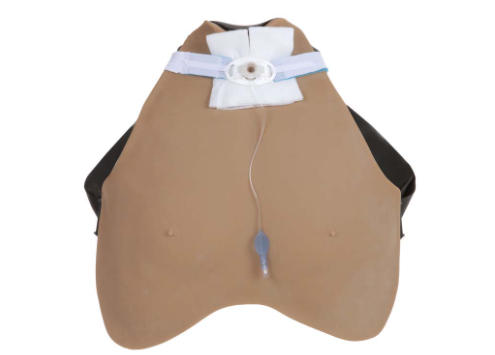When we put out the 2021 RealLIST Startups last week, we named some of the honorees over the past five years — some that have gone on to do very well, some that are no longer with us. A few, like SimUCare, we weren’t sure about.
It didn’t take long before readers emailed us letting us know that SimUCare is still going strong under a different name: Avkin.
The company was founded in 2015 by University of Delaware nursing faculty members Amy Cowperthwait and Heiddy DiGregorio and alumni Amy Bucha and Robert Tilly, who developed learning tools for nurses that use technology to create more effective alternatives to medical mannequins.
In June 2017, the same year SimUCare was ranked second on the inaugural RealLIST Startups, the company rebranded itself as Avkin, keeping the same focus on healthcare simulation.
“The name SimUCare was accurate,” said Garret Walton, Avkin’s solutions development rep, “but it was a little on the nose.” The name Avkin was an evolution of the portmanteau “verakin” — the combination of “vera,” Latin for true, and “kin,” Latin for family. “They wanted the idea that this is a family of products and that we’re trying to get true education with a simulation. But it sounded too much like ‘American,’ so they decided to cut it down to Avkin.”
In late 2019, Avkin moved from its small starter location to the building that used to house the indoor bounce house Pump It Up in Newport. (“One of our rooms still has the old carpet, and there’s a random gumball machine,” Walton said.)
Twenty-five employees work at the location, where the company develops and manufactures all of its products, a line of six wearable simulators. They work like this: A medical actor known as a standardized patient wears a high-tech simulated body part that, coupled with their performance, helps create a far more realistic scenario for nursing students.
The company’s first product was the Avtrac. A wearable tracheostomy simulator, it’s worn over the upper torso and lower neck to help students learn to properly create an airway by making an opening in the neck.

“The actor portraying the patient will wear the device, and the Avtrac has got a tracheostomy tube coming out of the neck,” Walton said. The devices have vibration-based touch technology. “So, say the learner is practicing suctioning out a tracheostomy. If you go in too deep, it’s excruciating [for the patient]. With the haptic feedback, if they go in too deep or are too rough, it’ll vibrate and let the standardized patient know.”
The actor is trained to play a specific character that is surprisingly detailed, down to their home life.
“We even have it down to where they’ll tell the doctor one thing but they’re really doing something else, so the learners have to try and suss out that information like you would a real person,” said Walton.
With the actors playing such an important part in healthcare simulation, Avkin even offers an online training course for people interested in becoming certified standardized patients.
While hands-on, person-to-person simulation is Avkin’s primary method of education, COVID-19 brought obvious challenges for the company — and for nursing students.
“With some of our partners, we’ve figured out plans for socially distanced simulation,” Walton said. “A lot of nursing schools lost their residency programs, so there were a lot of up-and-coming nursing students that had no hands-on clinical experience.”
The schools quickly introduced online avatar-based simulations as an alternative. It was better than nothing, but by summer, some state boards were saying avatar-based solutions don’t count as simulations.
In response, Avkin pivoted and began offering a new educational service called the virtual SP (as in, standardized patients) program, so nursing students can still get experience with a trained actor playing a fully fleshed-out character, only it’s via a telehealth platform instead of in person. The scenarios stay relevant, including a character who is a mother who is anxious about vaccines.
For now, the telemedicine simulations are developing soft skills and training in a virtual healthcare technology that likely will remain widely used after COVID-19 is under control. The company’s leaders are looking forward to returning to in-person simulation, and expecting to see some growth after a challenging 2020, including hiring more employees.







